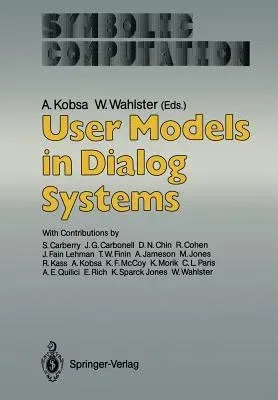User Models in Dialog Systems (Softcover Reprint of the Original 1st 1989)Paperback - Softcover Reprint of the Original 1st 1989, 8 December 2011

Qty
1
Turbo
Ships in 2 - 3 days
In Stock
Free Delivery
Cash on Delivery
15 Days
Free Returns
Secure Checkout
Part of Series
Artificial Intelligence
Part of Series
Symbolic Computation
Part of Series
Symbolic Computation / Artificial Intelligence
Print Length
471 pages
Language
English
Publisher
Springer
Date Published
8 Dec 2011
ISBN-10
3642832326
ISBN-13
9783642832321
Description
Product Details
Book Edition:
Softcover Reprint of the Original 1st 1989
Book Format:
Paperback
Country of Origin:
NL
Date Published:
8 December 2011
Dimensions:
24.16 x
17.37 x
2.72 cm
ISBN-10:
3642832326
ISBN-13:
9783642832321
Language:
English
Location:
Berlin, Heidelberg
Pages:
471
Publisher:
Weight:
816.47 gm

